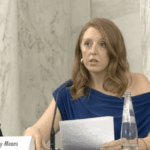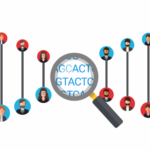European biosecurity efforts fall short
By Malcolm Dando | August 7, 2008
The European Commission is on the right path among government institutions in putting issues of biosecurity and biosafety on the public agenda, yet even their efforts demonstrate how far governments have to go.
In July 2007, the commission released its “Green Paper on Bio-preparedness,” whose aim was to stimulate debate on “how to reduce biological risks, and to enhance preparedness and response” within the European community. The paper subsequently spurred a range of projects. At the end of May 2008, the directorate-general for the commission’s Justice and Home Affairs Department released a paper from the Bio Sub-group of the Chemical, Biological, Radiological, and Nuclear Task Force. (The Bio Sub-group aims to “identify concrete actions which need to be taken in prevention of threats to human beings by biological agents and toxins,” and it envisions putting forward a “a concrete policy package” in 2009.)
Most life scientists, even in developed countries, haven’t given serious consideration to the dual-use problem, so how can they assess the security aspects and implications of a research project or publication?”
The Sub-group paper discusses several topics—such as a European Union (EU) list of biological pathogens and toxins of special security concern, raising awareness among scientists and the public, standards and procedures, and the role of research—and makes recommendations about some of them. For instance, within the discussion of the role of research, the paper highlights the role for funding organizations and publications. It recommends that funding organizations consider the security aspects of proposed research before funding and that a publication’s peer reviewers consider the security aspects of the results of scientific work and raise these with the authors before publishing research.
Both are sensible ideas, yet given the low level of awareness of the dual-use problem amongst life scientists, I wonder if this is possible. It is quite clear that most life scientists, even in developed countries, have not given serious consideration to the dual-use problem, so how can they assess the security aspects and implications of a research project or publication? Moreover, these would be complex judgements that do not admit of easy answers even if scientists have given prior consideration to the possibilities for hostile misuse of benignly intended work.
In response to calls for awareness raising that resulted from the Green Paper, the Sub-group paper considers three particular issues: the practical implementation of legislation; of training and courses; and of a code of conduct. In response to the Green Paper, 16 of 19 EU member states agreed that courses in bio-standards and best practices should become part of the university curriculum. Yet, the recommendations for action that come out of the Sub-group include are not realistic at present.
They include: “Consider developing guidelines for minimum training requirements for persons working with, having access to, or handling biological agents and toxins at EU level, based on the national experience across the EU 27,” and “in conjunction with university and professional associations, consider development of minimal requirements for academic training in bio-safety, on potential misuse of information and agents and on bio-ethics for undergraduate, graduate and postgraduate students.” How will the life sciences community cope with such requirements, particularly as bioethicists themselves have just begun considering the problem of dual use?
At the very least, the Sub-group paper should make it apparent to life sciences communities that times are changing. The code of conduct recommended by the paper notes: “Such a code could be part of an ethos of a professional organization similar to medical doctors or lawyers. If made mandatory, breaking such a code could for example result in expulsion from a professional organization or losing a licence.” Whether codes of conduct should be developed at the EU or national level, the potential threat to one’s professional livelihood should get the attention of life scientists. It will be interesting to see how these discussions and decisions develop in the EU and how they might affect developments in other countries and regions as the security implications of advances in the life sciences come under closer scrutiny.
Together, we make the world safer.
The Bulletin elevates expert voices above the noise. But as an independent nonprofit organization, our operations depend on the support of readers like you. Help us continue to deliver quality journalism that holds leaders accountable. Your support of our work at any level is important. In return, we promise our coverage will be understandable, influential, vigilant, solution-oriented, and fair-minded. Together we can make a difference.
Topics: Biosecurity, Columnists















